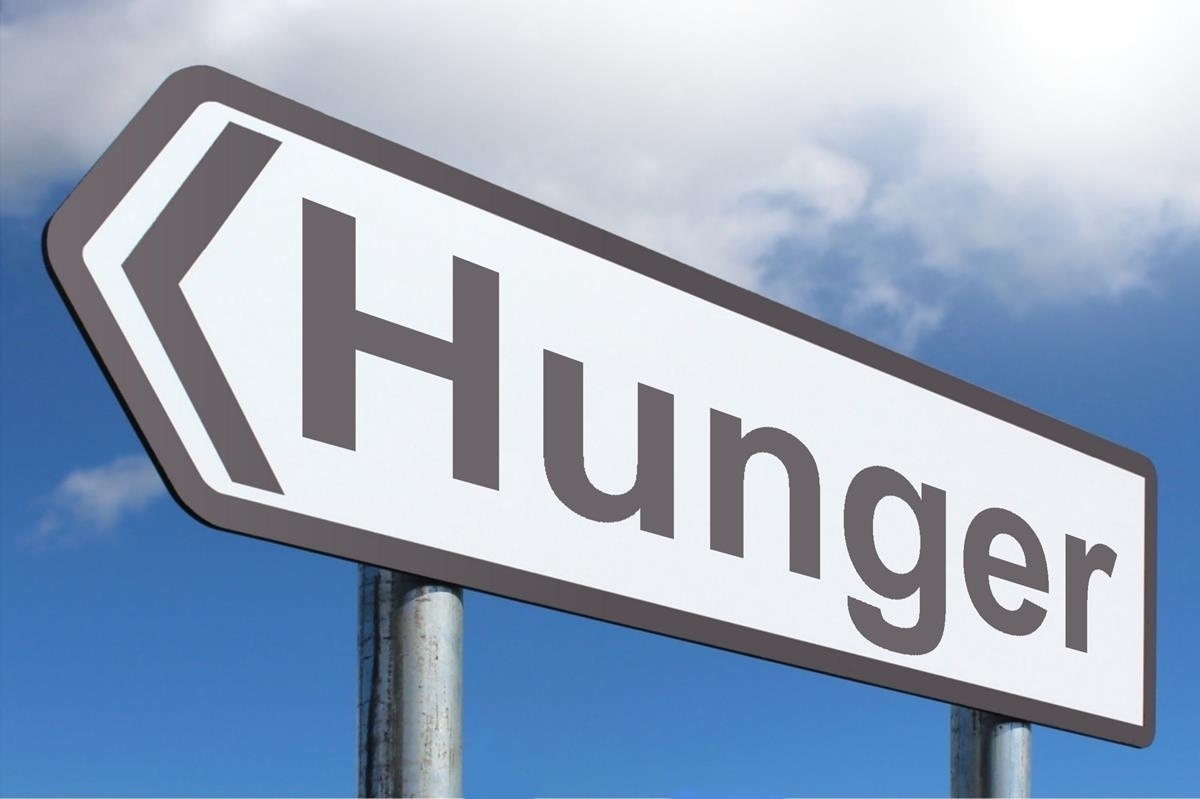What kind of parent raises humans who treat food as though it is a form of entertainment—and no, not in the dining while visiting friends sense, in the let’s see how much we can eat and get ourselves posted in the Guinness Book of Records, on YouTube, on Twitter, or some other social media? Netflix just announced they will livestream a hotdog eating competition in September and showered the competitors with all sorts of accolades.
I abhor food-eating competitions, and I have a huge problem seeing people pelting each other with food for some cultural reason or just for fun, shoving pies into faces as a joke or gorging themselves in a race to see who can finish first.
I am not a foodie. I eat to live, not live to eat. Food to me is like putting gas and oil in a car—do what will keep it running reasonably efficiently. I will eat the same thing day and night for years. Then my body says “time for a change,” and I will eat something different—again, the same thing for years. I don’t want to have to think about what I am going to eat. I know, it’s there, I do it, I’m healthy and alive.
A friend of mine once asked if I didn’t think I should eat a more balanced diet. My response was that if you take my eating habits across a 10-year period, it’s balanced. I have never gone to a country as a food tourist. I don’t glorify food or make a pilgrimage to try different dishes from different areas. It’s food, it’s there, I’ll eat it because I must in order to sustain life.
More than 10 percent of the world’s starving
For most of human history, finding enough food to survive and nourish the family was a never-ending struggle against the always-lurking threat of starvation. Our ancient ancestors lived nomadic lives tied to the natural cycles of migrating herds they hunted and plant life they foraged. A successful hunt or harvest meant they could eat well for a time, while thin pickings or escaped prey saw hunger looming again. Even after the advent of agriculture, droughts, blights and crop-chomping pests regularly disrupted food production and stores.
It is only in the last 100 years or so that much of the planet has managed to overcome widespread food scarcity and famine through innovations in farming, preservation and globalized food supply chains. Yet, even with considerable agricultural and technological progress, chronic hunger and food insecurity remain a harsh reality for more than 800 million people worldwide.
Poverty, adverse climate events, war, inadequate infrastructure and a lack of sustainable farming resources all contribute to hundreds of millions struggling to feed themselves and their families.
According to a 2021 report, “The State Of Food Security And Nutrition In The World” issued by the United Nations Food and Agriculture Organization (FAO), approximately 828 million people were affected by hunger in 2021, and it’s deeply disturbing to see certain cultures treat food with unabashed frivolity by having competitive eating contests and “food fights” where precious sustenance is intentionally wasted—the apex of disrespect to how we treat the nourishment that allows us to live.
Food is sacred—it provides the fuel for our bodies to function and thrive. The hard labour of farming, harvesting, preserving and preparing the meals that feed the world should be respected and honoured, not mocked or disregarded. Food is also a source of cultural tradition, community and human connection. Sharing a meal brings people together, bonds families and allows food heritage to be passed down from one generation to the next. Favourite family recipes get handed down, with special-occasion dishes becoming integral to celebrating major life events like weddings, births and holidays.
To treat food as a mere novelty act, spectacle or disposable plaything spits in the face of the fundamental human needs it fulfills and disrespects those who don’t take such privilege for granted. Those who have consistent access to bountiful, reliable nutrition too often take it for granted as just another form of entertainment or leisure.
Food-eating competitions and waste
Food-eating contests exemplify an extreme lack of respect and consideration for those in need. People essentially binge in a display of excessive overconsumption that glorifies gluttony while serving as an insulting slap in the face to the millions facing starvation worldwide. Watching someone intentionally shovel down inhuman portions of food belittles and makes light of food insecurity by turning eating into a sideshow.
It mocks the struggles of the poor whose days are spent worrying about how to put any food on the table to feed themselves and their children. How disrespectful it is for those suffering from malnutrition in famine or drought-stricken regions to see such blatant, unnecessary gorging for the sake of “sport.” These contestants make a game out of stuffing themselves to sickening levels while almost one billion don’t even have access to enough calories.
The disregard and waste continue even after these eaters have over-indulged to the point of feeling ill. Huge amounts of leftover, partially-eaten food ends up in the garbage bin rather than going to feed those in desperate need. All the hard work and resources required of farmers, food manufacturers, transporters and others that go into producing those meals is squandered so a handful of people can compete to see who can digest the most in a single sitting.
The sheer calorie count of what gets tossed in the trash from eating contest leftovers could easily satiate hunger for families in impoverished nations for weeks.
Food fights
Food fights, another form of food abuse, have been part of many cultures since the Middle Ages in Europe. Humans throw food at each other just for fun. Events like La Tomatina in Spain, where participants throw tomatoes in a massive street battle, are celebrated as cultural and tourist attractions. However, these events are a symbol of a broader cultural disregard for food value.
These games also result in significant food waste. In a world where resources are finite and hunger is a ‘real thing,’ using food as a weapon in playful combat is deplorable. Intentionally taking good, edible meals and destroying them by throwing them at one another for amusement is an utter disgrace to all those facing hunger and food scarcity around the world. It transforms sustenance into projectile ammunition for childish ‘battles’ that reinforce how privileged the participants are to be able to waste nourishment so frivolously. What arrogance!
Put yourself inside the skin of someone starving who’s watching a group of idiotic humans taking that precious food—healthy vegetables, hearty grains, protein-packed legumes—and hurling it at each other in the name of “fun.” Every scrap wasted at one of these childish “food fights” could be a nutritious meal for an impoverished family or a filling supper for those in developing nations or regions hit hard by drought, famine or conflict.
Food-eating competitions and food fights are not harmless fun. They are a symptom of a deeper species malaise that has absolutely no regard for the value of food and the plight of the hungry.
Food is a gift that sustains life, and it should be treated with the reverence it deserves.
«RELATED READ» WHITE PONY EXPRESS: A prototype solution to the problem of community hunger»
image 1 neoncouch, CC BY 2.0 2 jpellgen CC BY-NC-ND 2.0 3 hitesh choudhary 4 Nick Youngson CC BY-SA 3.0

